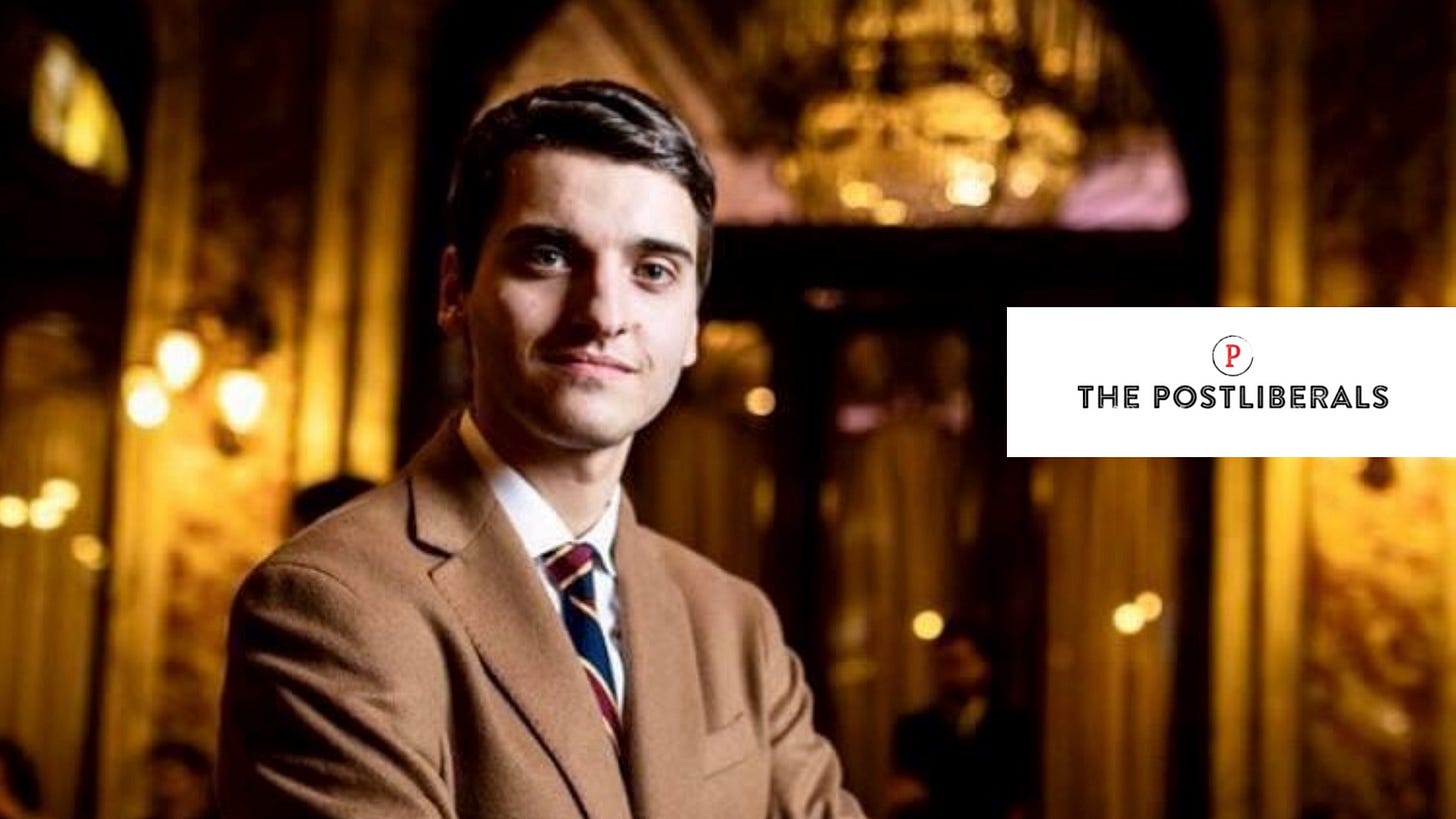New Right, Italian Style
Francesco Giubilei talks with Gladden Pappin about the Roman Empire, Italian politics and how to misunderstand China
Beginning today, Postliberal Order launches a new subscriber-only feature: occasional interviews with leading political figures whose work figures prominently in our emergent postliberal order. The first is Francesco Giubilei, interviewed by Gladden Pappin last week on the grounds of CPAC Hungary. Giubilei is one of the leading conservative political entrepreneurs in Italy, and author of The History of European Conservative Thought. He is president of the Fondazione Tatarella as well as of Nazione Futura, an Italian cultural movement. Catch him on Twitter @giubileif. Read below and subscribe to Postliberal Order today!
Francesco Giubilei, you are an Italian conservative, and you’ve been at the head of developing conservatism in Italy. What does it mean to be a conservative in Italy today?
It means first to present a different vision of conservatism from the one portrayed in the mainstream media. If you’re an Italian, we have to talk about Latin conservatism, and in some way there is also an Italian conservatism. We have many points in common with American and English conservatism, but at the same time we have many different emphases.
The idea of Latin conservatism is one that is linked with the Catholic tradition. To be sure, also in the United States there are some Catholics who are conservative, but the main tradition of American conservatism is probably not linked with the Catholic religion.
To be a Latin conservative and an Italian conservative means to have more attention on the welfare state—a point in common with social conservatism [Editor’s note: “social conservatism” in the Latin world refers to conservative-oriented state support]. It means to have a vision of a strong state in the strategic sector. This is different from, for example, the libertarian view of society. It means that we want a strong state in defense, we want a strong state in the defending of our borders, we want a strong state in the energy sector.
Francesco Giubilei spoke to Postliberal Order’s Gladden Pappin on the fringes of CPAC Hungary.
But at the same time, we don’t want the state to tell us how to live, how to speak—we don’t want a strong state in our private lives—we don’t want a strong state in the economic private sector. We don’t want such strong taxation like unfortunately we have in Italy, or such a strong bureaucracy like we have. So, I think it’s important to explain that Italian conservatism has a different tradition from the English one that was theoretically born with Burke’s Reflections.
Our conservatism has two pillars. One is the Roman Empire: our conservatism was born with the idea of the mos maiorum of the Roman Empire. And in the second respect, our conservatism was born with the idea of the Catholic Church. We have these two pillars, and that means that the Middle Ages, which everyone derides, for us represents an important period. If you go to central Italy, Tuscany and Umbria, you can see how the medieval idea was important. If you talk about Dante, he was a totally medieval poet, totally Catholic poet. So we don’t have to just talk against the medieval period; it creates one of the important aspects of our identity.
As an Italian, we are part of Western civilization but especially we have our local identity. Local identity is deeply felt in Italy. If a person comes from one city—from Tuscany, from Siena—he has a totally different view of society from a person of Pisa, because they have historical differences. So we have a local identity, national identity and a European identity. That is, in some way, what it means to be an Italian conservative.
You have a number of different right-wing and conservative political parties in Italy. If you look at the numbers, often they add up to a sizable portion of the Italian electorate; Lega is part of the governing coalition. What’s the current state of play among the key Italian right-wing parties?



